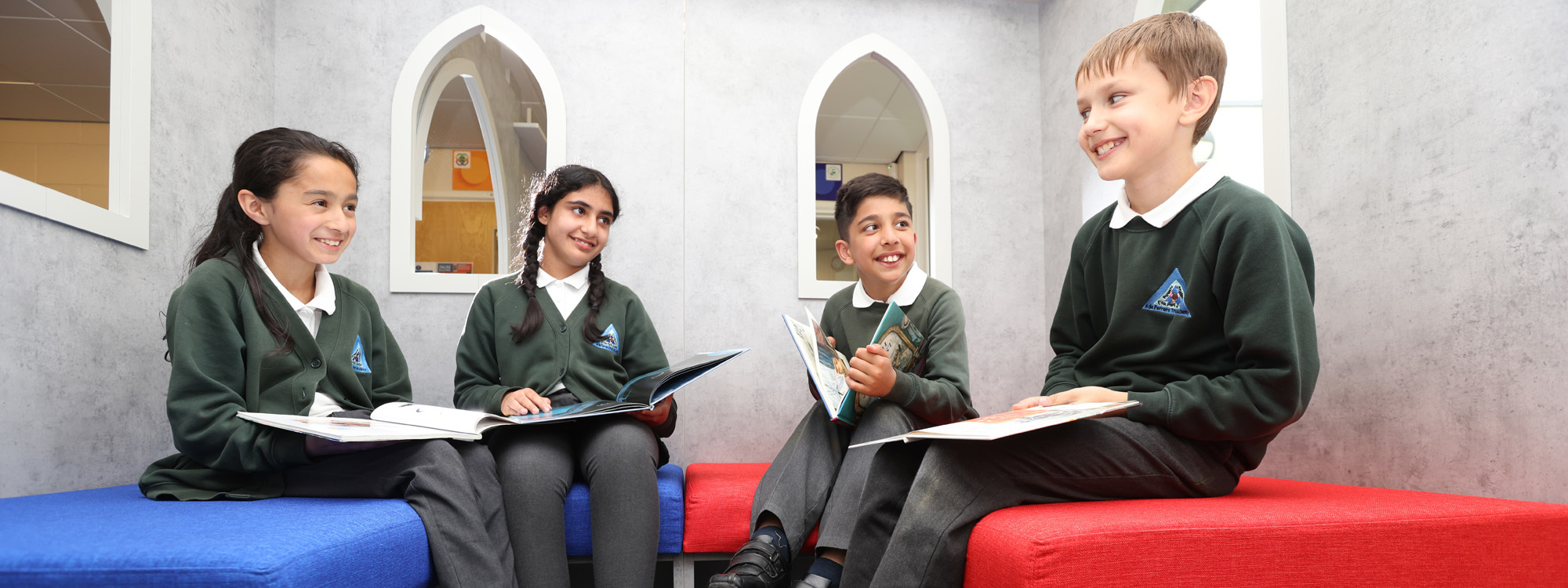- Home
- Curriculum
- Reading Guidance
Reading Guidance
At Eton Park we recognise that learning to read is one of the most important skills a child can master. Evidence suggests that children who read for enjoyment every day not only perform better in reading tests than those who don’t, but also develop a broader vocabulary, increased general knowledge and a better understanding of other cultures.
In fact, reading for pleasure is more likely to determine whether a child does well at school than their social or economic background.
Reading at Eton Park | Supporting reading – phonics |
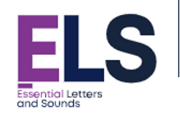 At Eton Park we are passionate about making sure every child is a confident and fluent reader by the time they leave us in year 6.
At Eton Park we are passionate about making sure every child is a confident and fluent reader by the time they leave us in year 6.
We acknowledge that some children will need further support to achieve this. As a result, we offer timely intervention for the development of both decoding and fluency. Our phonics intervention is delivered using Essential Letters and Sounds. This is the same scheme as our main infant feeder, Lansdowne Infants, use. This ensures continuity and progression for our pupils.
What is Essential Letters and Sounds?
Essential Letters and Sounds is a Systematic Synthetic Phonics (SSP) programme, validated by the Department for Education.
By distilling Letters and Sounds to its purest form, – its essence – we ensure every phonics lesson is taught to the highest standard. Essential Letters and Sounds is an SSP where only the essential elements are included.
The name reflects the key principles of the programme; simplicity and consistency.
Try the following link for access to ebooks and more advice:
https://support.oxfordowl.co.uk/parent-support/parent-getting-started/what-is-oxford-owl-for-home/
Reading at Eton Park
Children will read widely at Eton Park Juniors. We pride ourselves on developing children who love to read!
Your child will bring home three books at a time, maybe more!
· One book is from our levelled reading scheme which ensures your child is supported to read progressively from nursery to year 6.
· The second book is from our 50 best reads challenge. These are age appropriate texts. Children will be expected to read all 50 books in the year before they move on to the next 50 in the following year.
· The final book is taken from our school library. This may be something for you to share together or a non-fiction book. This choice is theirs, we recommend but don’t enforce.
 | 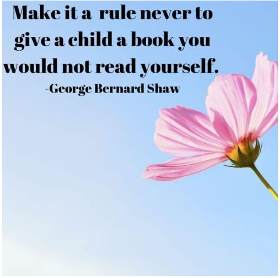 | 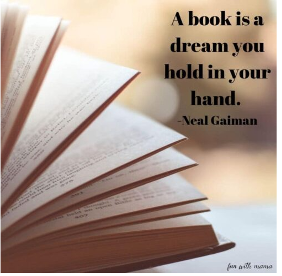 |
Reading at home
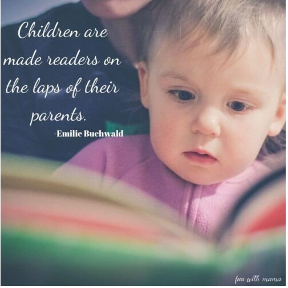 Learning to read is about listening and understanding as well as working out what’s printed on the page. Through hearing stories, children are exposed to a wide range of words. This helps them build their own vocabulary and improve their understanding when they listen, which is vital as they start to read. It’s important for them to understand how stories work too. Even if your child doesn’t understand every word, they’ll hear new sounds, words and phrases which they can then try out in different contexts. You could also encourage them to find out the meaning of any new words that are introduced to them.
Learning to read is about listening and understanding as well as working out what’s printed on the page. Through hearing stories, children are exposed to a wide range of words. This helps them build their own vocabulary and improve their understanding when they listen, which is vital as they start to read. It’s important for them to understand how stories work too. Even if your child doesn’t understand every word, they’ll hear new sounds, words and phrases which they can then try out in different contexts. You could also encourage them to find out the meaning of any new words that are introduced to them.
We encourage children to read at home five times a week and ask that parents sign their reading diary to show that they have read. Children are then rewarded in school with weekly Dojo points for reading.
Supporting reading for pleasure at home
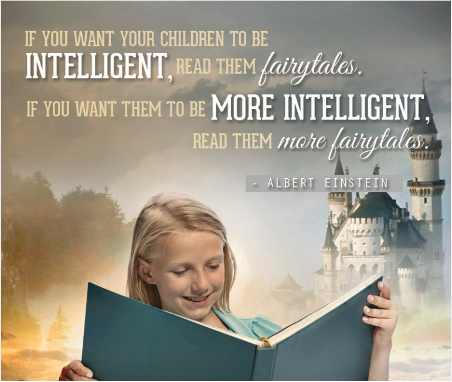 Reading for pleasure opens up new worlds for children. It gives them the opportunity to use their imagination to explore new ideas, visit new places and meet new characters. Reading for pleasure also improves children’s well-being and empathy. It helps them to understand their own identity, and gives them an insight into the world and the views of others.
Reading for pleasure opens up new worlds for children. It gives them the opportunity to use their imagination to explore new ideas, visit new places and meet new characters. Reading for pleasure also improves children’s well-being and empathy. It helps them to understand their own identity, and gives them an insight into the world and the views of others.
Here are some ideas for encouraging your child to read for pleasure:
- Set aside a special time – just a few minutes a day is enough to create a reading habit.
- Get caught reading yourself – show that reading for pleasure is not just for children.
- Read to each other – if your child really doesn’t want to read on their own, then read together. You read a page, then they read a page. Or one of you could read any dialogue. Be brave and put on different voices.
- Value the books they choose to read – all reading is valuable for a child’s development. Some of us prefer non-fiction; some of us prefer comics. One child might like superhero books; another might a book of football statistics.
- Set a challenge – can they read ten books before they’re ten? Can they read a book from six different genres: a comic, an information book, a funny book, a sci-fi book, a classic and an instruction manual?
- Reading buddies – reading to a younger sibling can boost your child’s self-confidence and communication skills.
- Audiobooks – audiobooks allow children to experience a book above their own reading level. It also allows you to share a book together or make the most of those car journeys. Listening to a story over and over again can improve vocabulary and encourage deeper comprehension.
- Read-a-thon – join a sponsored reading event to raise money for charity.
- Stage and screen – use your child’s favourite films or games as a springboard into reading. Knowing the characters and storyline can be a helpful bridge into reading a longer story.
- Book club – find out about local book clubs.
For more ideas and for access to free online reading books:
https://www.oxfordowl.co.uk/login?active-tab=students
